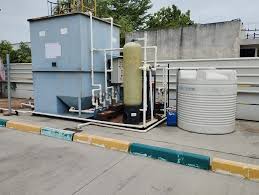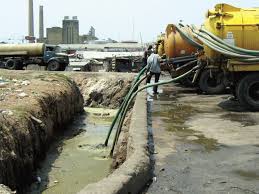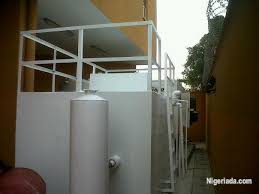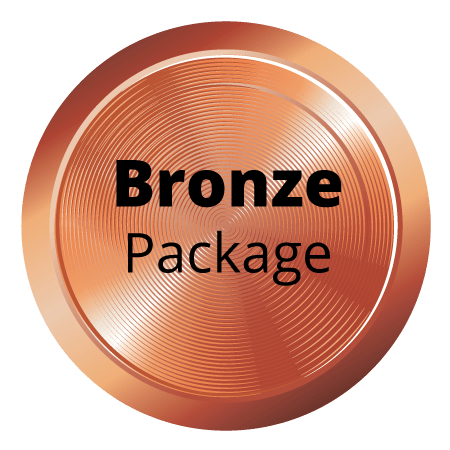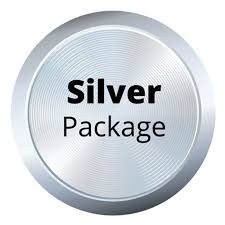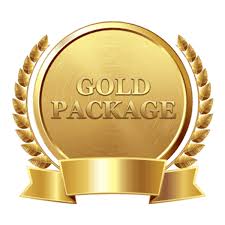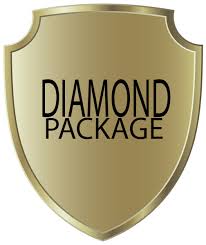![]()
If you’ve landed on this article page, you’re probably searching for a
good business idea—an idea that’s light on the pocket but heavy on
returns, promising both a fulfilling journey and potential profit.
|
Breaking Into Nigeria’s Lucrative Sewage Treatment Market as a
New Entrepreneur
Nigeria’s rapidly growing but underserved sewage treatment
industry presents tremendous opportunities for aspiring
entrepreneurs. With the right strategic approach, new entrants
can successfully break into this market and build scalable and
socially impactful sewage treatment businesses.
Nigeria generates over 32 million cubic meters of sewage
annually, with collection rates below 30% nationally. Less than
10% of collected sewage receives proper treatment due to
dilapidated infrastructure. The rest is discharged untreated
into the environment. 95 million Nigerians lack access to basic
sanitation facilities. Pathogens and untreated sewage endanger
water bodies and public health.
Incorporate your sewage treatment business formally first.
Environmental assessment approval and permits from state
regulators.
Site suitability permits from water resources and town planning
agencies.
Trade effluent discharge consent from the state regulator.
Sludge disposal permissions from municipal authorities.
Registration and certification from agencies like the Water
Resources Regulatory Commission.
Local government permits in your areas of operation.
Engage experts like environmental consultants to navigate the
licensing process.
Analyse Customer Segments and Revenue Models
Targeting the right customer segments with optimal pricing
models is key:
Institutional clients – schools, universities, hospitals,
apartment complexes. Charge monthly operations & maintenance
(O&M) fees based on sewage volumes.
Developers – Offer sewage treatment facility development as
one-time engineering, procurement, and construction (EPC)
contracts.
Industries – Provide treatment for industrial effluents either
through outright sales or sewage treatment-as-a-service.
Municipalities – Bid for long-term Build-Operate-Transfer (BOT)
concessions to upgrade city sewage infrastructure.
Commercial establishments – Offer desludging, haulage and septic
tank cleaning on a subscription or per-service basis.
Scout Locations Based on Sewage Volumes
Ideal locations for sewage treatment operations have:
High sewage generation – urban areas, industrial clusters,
institutional campuses etc.
Inadequate municipal sewage treatment infrastructure, presenting
a gap you can serve.
Availability of low-cost land with suitable drainage contours.
Supportive zoning laws allowing for decentralized sewage
treatment.
Access to roads, electricity and water supply.
Proximity to existing or upcoming real estate projects you can
target as customers.
Design and Set Up Treatment Facilities
Work with engineering consultants to design optimal plants:
Determine correct treatment capacity based on client commitments
and growth projections. Over-sizing leads to negative ROI.
Design modular, phased capacity enhancement to allow scaling up
as you add more customers.
Ensure optimal flow between pre-treatment, primary treatment,
secondary treatment and tertiary treatment stages.
Include sludge handling, water recovery and effluent discharge
systems.
Design infrastructure like piping networks, pumps, power backup,
control systems, testing labs etc.
Allow space for additional value-added solutions like biogas
production from sludge.
Source and Install High-Quality Equipment
Research all equipment carefully before procurement:
Primary treatment – Screening, sedimentation tanks, clarifiers,
oil water separators, flow meters.
Secondary/biological treatment – SBRs, MBR systems, diffused
aeration systems, biofilters.
Tertiary treatment – Filter presses, clarifiers, aerators.
Sludge handling – Sludge thickeners, digesters, belt filter
press, centrifuge, dryers.
Water recovery – Sand filters, activated carbon filters,
ultrafiltration.
Testing lab – pH, BOD, COD meters, spectrophotometer,
microscope.
Prioritize reputable manufacturers offering strong after-sales
support. Validate equipment capacities and process design.
Assemble a Skilled Technical Team
Staff your treatment facilities with:
Process/chemical engineers to design, implement and optimize
treatment processes.
Mechanical engineers to oversee equipment installation,
operations and maintenance.
Technicians and operators to run different treatment stages –
aeration, clarification, filtration etc.
Lab technicians to test samples and ensure effluent quality
compliance.
EHS specialists to implement safety protocols.
Sales and business development staff to acquire new customers
and manage client accounts.
Invest in ongoing training and skills development to build a
professional, customer-focused team.
Implement Strong Process Monitoring and Quality Control
Continuously monitor process parameters like pH, and dissolved
oxygen at different stages.
Regularly test samples from influent sewage, treated effluent,
sludge etc. for quality.
Ensure treated effluent meets all regulatory parameters for
discharge or reuse.
Inspect the functioning of mechanical and electrical equipment
daily. Plan preventive maintenance schedules.
Track treatment capacity utilization against sewage inflows.
Maintain detailed process documentation and logs for each
client’s sewage.
Plan for NABL or other accredited certifications for your
testing lab.
Robust quality control and reliable plant operations build trust
with regulators and clients.
Identify Revenue Sources Beyond Core Treatment Fees
Boost income by providing value-added solutions:
Supply treated wastewater to industries located nearby for
process use.
Treat and supply biogas from anaerobic sludge digestion to
nearby factories.
Sell dried sludge as fuel or fertilizer.
Provide desludging, collection and haulage services using
tankers.
Offer septic tank cleaning and maintenance contracts.
Run modular bio-toilets at public places and events on a rental
basis.
Diversified offerings provide multiple revenue streams and
smooth seasonal fluctuations.
Project Operations Costs Realistically
Account for major cost components involved:
Labor – technicians, operators, drivers, administrative staff.
Utilities like electricity and diesel for running equipment.
Chemicals like coagulants and disinfectants.
Equipment maintenance and parts replacement.
Vehicle O&M and fuel costs.
Testing lab expenses.
Licensing, compliance and contracted services.
Finance costs if taking loans.
Insurance, safety gear and other overheads.
Keep overhead costs lean until you gain operating experience and
scale.
Determine Optimal Pricing for Services
Balance customer affordability and ability to pay against your
profit targets to arrive at pricing for:
Monthly O&M contracts – Price based on sewage volumes and
quality; offer tiered pricing.
One-time EPC contracts – Mark up equipment, material and
construction costs by 15-20%.
Pay-per-use desludging/septic tank cleaning – Benchmark vs.
competitors; offer subscriptions.
Effluent supply – Link pricing to market rates for freshwater.
Biogas supply – Factor costs of biogas generators.
Getting pricing right is crucial to drive adoption across
customer segments while generating returns.
Build Strong Customer Relationships and Service Quality
Train all client-facing staff on professional conduct,
transparency and addressing complaints promptly.
Educate clients on the treatment process and how to interpret
reports.
Support customers in complying with effluent discharge
regulations.
Offer comprehensive maintenance contracts for equipment upkeep.
Make payment processes flexible and convenient.
Have clear and transparent communication at all times. Avoid
hidden charges.
Handle issues like equipment failures promptly through service
guarantees.
Excellent service keeps customers engaged and reduces churn.
|
